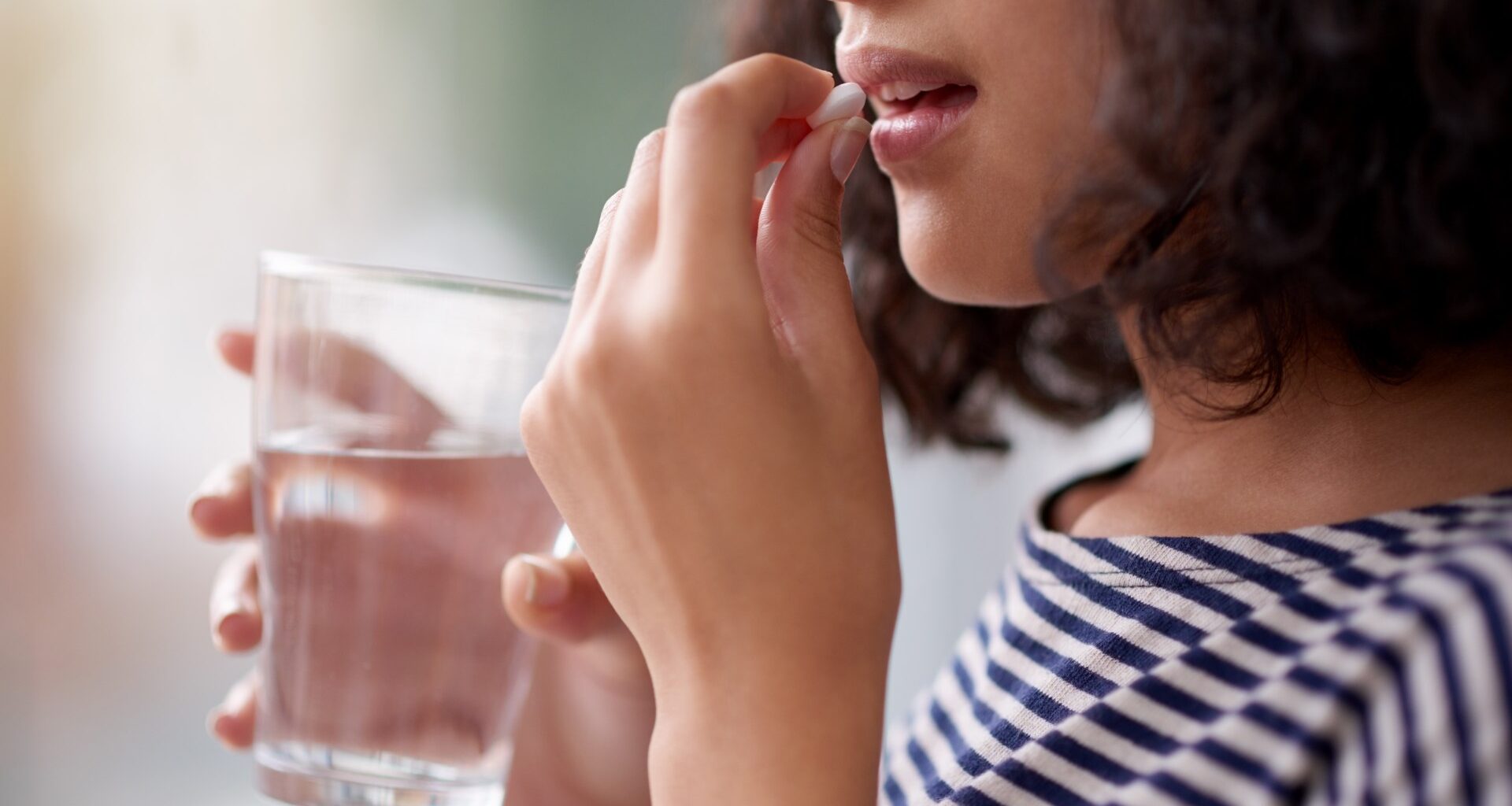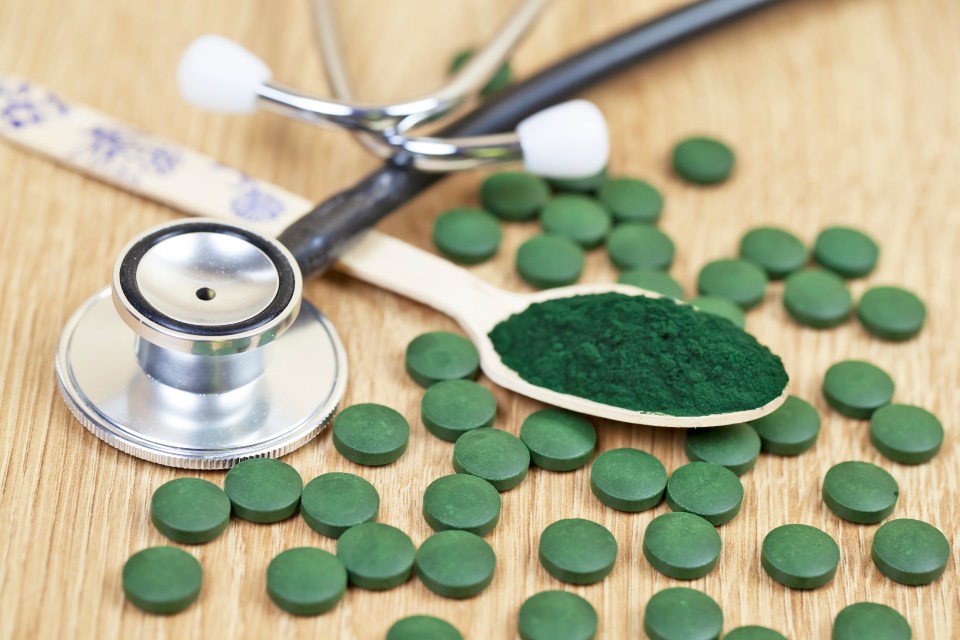A SUPPLEMENT derived from freshwater can reduce the risk of a ‘silent killer’ condition, say scientists.
Left untreated, the condition can increase the risk of heart attack and stroke.
1
Spirulina, available as supplements and powder, was shown to reduce systolic and diastolic blood pressureCredit: Getty
Edible algae, including spirulina, is recognised for its high nutritional value – high in protein, B vitamins, iron, and antioxidants like phycocyanin.
In a recent study published in the Journal of Human Nutrition and Dietetics, researchers investigated its effects on blood pressure (BP).
They looked at existing studies on the effects of microalgae (for example spirulina and chlorella) on BP, as well as macroalgae (for example seaweeds such as wakame or kombu).
Most studies used edible algae as supplements, while others provided algae as tablets, pills, drinks, or powder.
Read more on blood pressure
Daily algae intake ranged between 0.001 g and 8 g per day.
Of the 19 studies they looked at, 19 reported reductions in systolic blood pressure (SBP – the pressure in your arteries when your heart muscle contracts and pumps blood out to your body) and diastolic blood pressure (DBP – the bottom number in a blood pressure reading, representing the pressure in your arteries when your heart is resting between beats).
Microalgae was found to drive the most benefits, while macroalgae showed no significant effects.
Whole algae reduced SBP (–3.96 mmHg) and DBP (–2.82 mmHg) significantly, whereas extracts/bioactive compounds did not.
Spirulina was the most effective microalgae, reducing SBP by –5.28 mmHg and DBP by –3.56 mmHg.
Chlorella showed nonsignificant trends, and studies with algae dosage of more than 3g a day had a significant reduction in DBP (–3.05 mmHg) and SBP (–3.71 mmHg).
What is high blood pressure and what is a normal reading?
The authors cautioned excessive seaweed consumption, more than 5g a day, could pose heavy metal or iodine risks, so microalgae, such as spirulina are safer.
Overall, their results underscore the potential of whole edible microalgae as a natural, sustainable approach for BP management, complementary to existing pharmacological treatments.
Spirulina is commonly available in powder and tablet and capsule forms.
One example is Cytoplan Organic Spirulina, which offers 120 capsules for £16.80 – making it 14p a capsule.
High blood pressure damages blood vessels, making them stiff or narrow, which can lead to blockages or ruptures that cause heart attacks and strokes.
The condition is often called the “silent killer” because it has no noticeable symptoms, meaning many people don’t realise they have it until serious complications arise.
Lifestyle factors, genetics, and underlying medical conditions can all cause it, particularly poor diet, lack of exercise, and stress.
Find out other ways to lower blood pressure below…
How to lower blood pressure
Persistent high blood pressure (hypertension) puts extra strain on your blood vessels, heart and other organs and it can raise your risk of serious conditions like heart disease, heart attacks and stroke. Here’s how to reduce it.
Reduce salt
Adults are recommended to limit their salt to 6g per day (around one level teaspoon) to avoid health consequences including high blood pressure.
The top tip is to swap out table salt, according to the Salt Substitute and Stroke Study, replacing it with a reduced sodium and added potassium alternative.
Cut down on alcohol
Excessive boozing can narrow the blood vessels, which raises the risk of hypertension.
Official drinking guidelines advise that people should not regularly drink more than 14 units a week to keep health risks from alcohol low.
Get moving
Exercise is good for the heart and the blood vessels.
Although the guidelines recommend 150 minutes of activity per week, if you’re currently very inactive, just a walk to the shop every day is better than nothing, and you can work up from there.
Studies suggest that isometric exercises – when you hold the body in one position without moving, such as a wall squat or plank – are best for lowering blood pressure.
Stop smoking
Smoking cigarettes is a killer. It makes the arteries sticky and narrow, which can cause blockages.
While smoking is not a direct cause of high blood pressure, it can cause an instant rise to pressure, heart rate and reduce the amount of oxygen that gets to the body’s cells.
Skip coffee
Sadly, caffeine can cause a short, but dramatic increase in your blood pressure – even if you don’t have high blood pressure.
Therefore cutting back on coffee is recommended as a lifestyle tip for those with hypertension.
Lose weight
The above tips can help you to lose weight, which is beneficial because being overweight in itself is a risk factor for hypertension.
Being overweight forces your heart to work harder to pump blood around your body, which can raise your blood pressure.
The only way of knowing whether you have high blood pressure is to have a blood pressure test. All adults over 40 years old are advised to have their blood pressure checked at least every five years.

